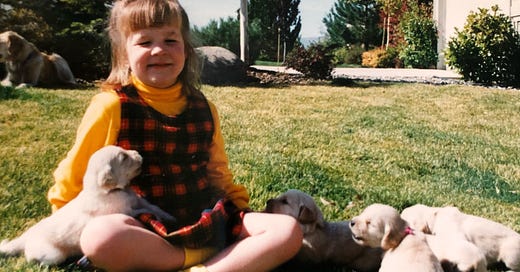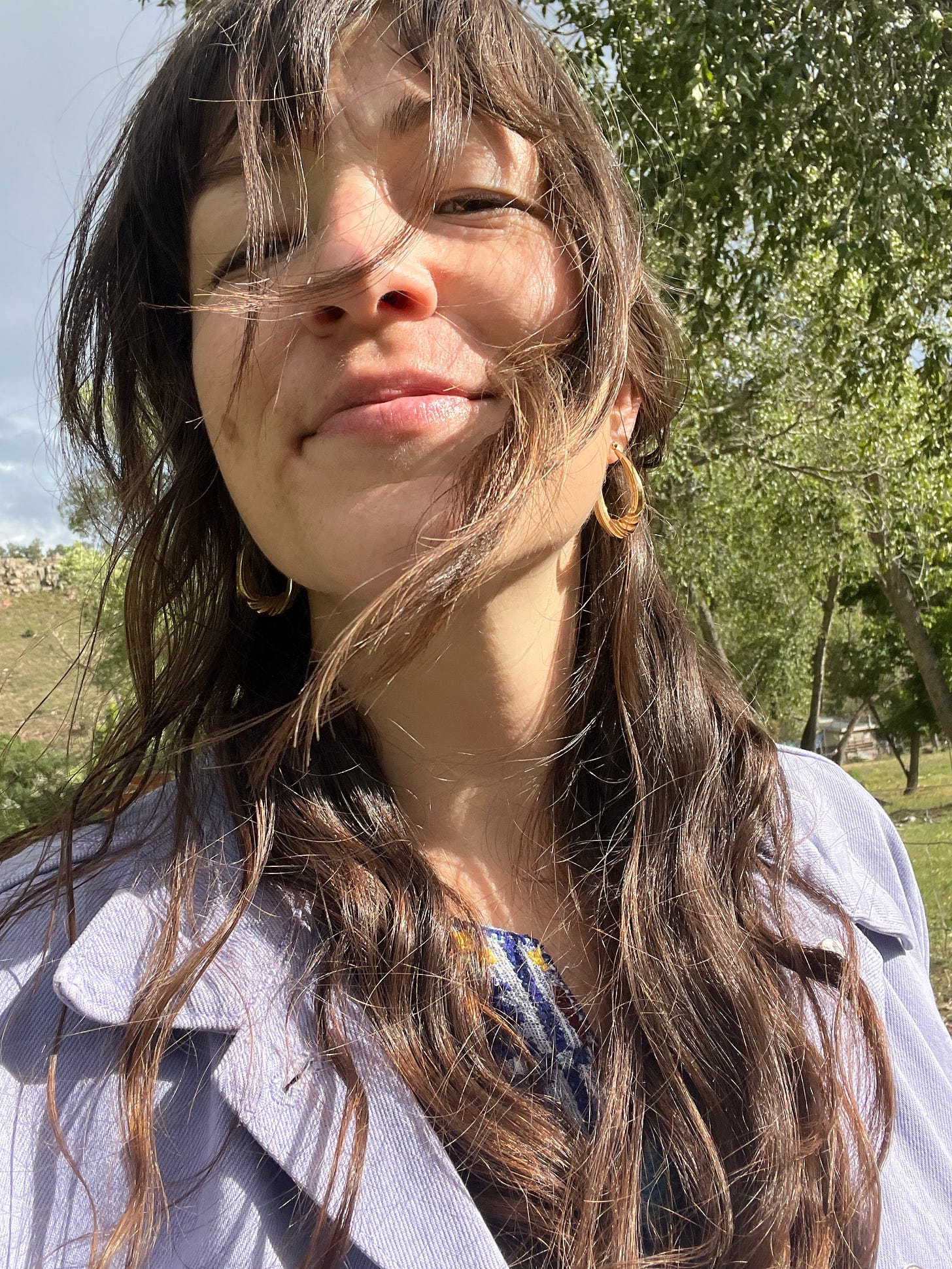When I first discovered my Ayurvedic dosha, I was disappointed. I read the description of kapha dosha and was sure I’d gotten the “bad” one—the one that nobody wanted. I was certain this mind-body assessment was revealing all the parts of myself I didn’t want to look at—and certainly didn’t want to love.
Kapha dosha represents earth and water. The words often used to describe kapha qualities are slow, heavy, slimy, sticky, dense, and cold. Yikes.
Without much context, this felt like something I did not want to be associated with.
The description also said that kaphas were often lazy and prone to weight gain. I hadn’t thought of myself as lazy—just slower to get moving—but it made me wonder if others saw me this way?
I’d struggled with body image my whole life, so the mention of weight gain hit a nerve. I was always a big kid—born in the 90th percentile for height and weight, taller than most of my classmates (even the boys), and just… sturdy.
As I got older (and more self-conscious), this sturdy quality made me feel out of place, undesirable, or like I was too much.
Aside from kapha being described as lazy (which I take issue with now—more on that later), it’s also not the dosha that gets celebrated for having the best ideas, being the strongest, fastest, or most efficient.
I longed for a constitution like vata or pitta—something thinner, more athletic. I wanted to be the productive one, well-received and well-positioned within capitalism—or at the very least, the ethereal, poetic, and imaginative one, with a kind of manic-pixie-dreamgirl aesthetic that would be desired within the confines of patriarchy. I was unconsciously orienting myself toward what I believed would be most valued and praised by society.
But this mind-body assessment — silly dosha quiz in the back of a book — was telling me that I was something else.
And… what if it was right?
What if...
I gave myself permission to embody the qualities of earth and water?
I was loyal and loving and patient?
I was grounded, steady, and reliable?
I could learn to appreciate the parts of myself I thought were undesirable?
What if I decided to tell myself a different story?
I wish I could tell you that my 20-year-old self turned it around right then—that I was able to suddenly love myself and feel empowered in exactly who I was. Instead, I set the dosha assessment aside. I finished college. I traveled. I continued to hear the voices of shame and insecurity, but something began to shift.
I was practicing more yoga than ever and started to feel proud of what my body could do. As someone who was always picked last for sports growing up, I liked moving at my own pace, not feeling a sense of competition, and challenging myself little by little. I felt an ease in my body and mind that seemed to linger.
Returning to Kapha
Years later, I was back in India—studying, practicing, and teaching yoga—when the doshas resurfaced. This time, I didn’t bristle at the mention of kapha’s heavy, grounded nature. I let it sink in, slowly reflecting on how good it felt to be grounded.
I began to notice that people were often drawn to this quality in me. That they felt calm and safe in my presence. That this grounded nature was actually one of the things that made me a great yoga teacher.
I let the qualities of kapha dosha continue to unfold before me—
Loyal. Patient. Compassionate.
Yes. Yes. Yes.
I felt the power in my endurance, the beauty of my steady methodical way, and I finally began to direct some of that compassion toward myself.
I started to notice the ways in which my kapha was quite literally holding me through so much change and growth, without evoking anxiousness or anger.
While others around me were often overwhelmed or unsteady, I was calm and content.
Kapha brings with it a deep resilience that I’ve come to to cherish.
There Are No Bad Doshas
By the time I moved to Boulder to study Ayurveda formally, I was solidly pro-kapha. I loved knowing my constitution and understanding all the great qualities that it brought to my life and to my relationships.
When I started seeing clients in the student clinic, I noticed something interesting:
Almost everyone was convinced they were vata or pitta.
No one wanted to claim kapha.
It seemed as though I was not the only one who had struggled with negative connotations and internalized bias toward the “chubby” “lazy” dosha.
But the truth is:
Kapha is not the bad one, because there are no bad doshas.
When we misunderstand or devalue certain doshic qualities, we limit our ability to know ourselves, find peace with who we are, and work with our natural rhythms to feel balanced and whole.
✦ The Doshas: Strengths & Challenges
If you’ve made it this far and are curious about all three doshas, here’s a quick guide:
🌬 VATA Dosha
Ether + Air
Energy of movement. Responsible for creativity, communication, breath, heartbeat, and elimination.
Strengths:
Clarity · Imagination · Communication · Playfulness · Flexibility · Curiosity · Artistic · Inspired
Challenges:
Distractibility · Forgetfulness · Overwhelm · Indecision · Flakiness · Hasty choices
Balance vata with…
→ Oil massage
→ Warm, soupy foods
→ Tulsi tea
🔥 PITTA Dosha
Fire + Water
Energy of transformation. Responsible for metabolism, digestion, confidence, willpower, and joy.
Strengths:
Focus · Courage · Passion · Drive · Discernment · Discipline · Analytical thinking
Challenges:
Impatience · Frustration · Judgment · Burnout · Overwork · Headaches
Balance pitta with…
→ Rose water
→ Yin yoga
→ Hibiscus tea
🌿 KAPHA Dosha
Water + Earth
Energy of structure. Responsible for love, patience, grounding, lubrication, and endurance.
Strengths:
Stability · Compassion · Patience · Loyalty · Reliability · Thoughtfulness · Forgiveness
Challenges:
Stagnation · Attachment · Resistance to change · Lethargy · Brain fog · Overeating
Balance kapha with…
→ Hot ginger tea
→ A brisk walk
→ Waking up early
Curious About Your Dosha?
Take the Mind-Body Quiz to get a feel for your natural constitution.
Thanks for reading 💛
Wishing you self-compassion, curiosity, and kapha-infused groundedness this week.
— Molly







Loved reading this!!!